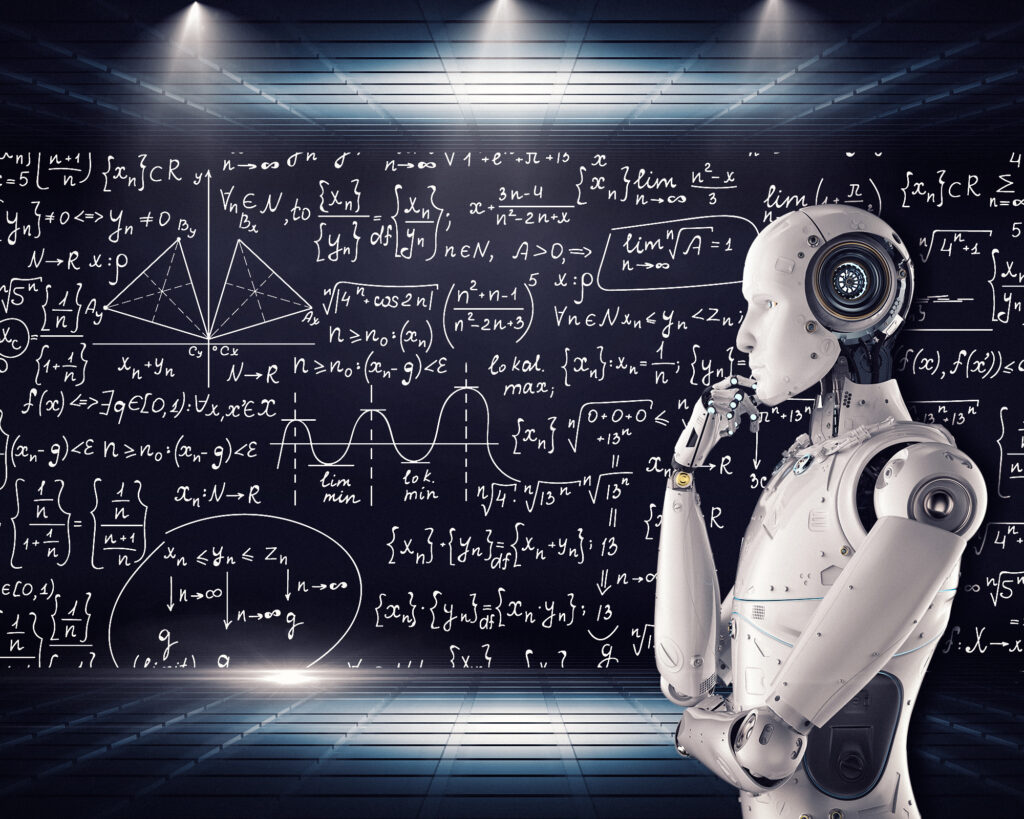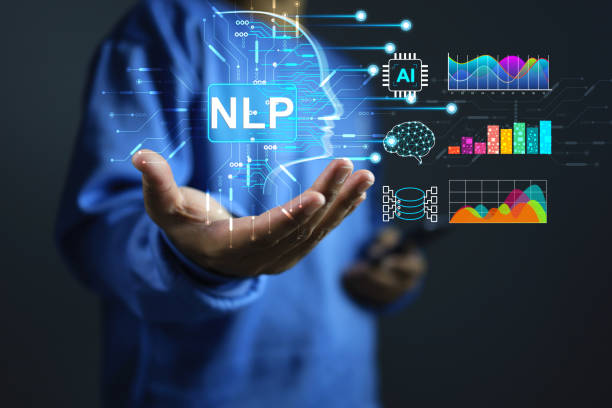Introduction
AI: What is it?
A Brief Overview
When machines are made to understand and learn like people, this is known as artificial intelligence, or AI. Similar to how humans use our brains to solve issues, make decisions, and learn new things, artificial intelligence employs computer programs to accomplish these same tasks, but much more quickly and frequently on a much bigger scale.
Most likely, you’ve already witnessed AI in action:
When you use your face to unlock your phone 👤📱
When you pose a query to Siri or Alexa 🎙
When YouTube or Netflix recommends a show you might enjoy 🎬
It is working behind the scenes to assist you by evaluating data, identifying trends, and making informed decisions. providing a machine a brain—one that is constructed using code, data, and a great deal of ingenious math—is analogous to providing a human brain.
AI can play games, drive automobiles, comprehend speech, translate languages, identify photographs, and even assist medical professionals in making medical diagnoses. Everything from space missions to shopping apps uses it.
To put it briefly, artificial intelligence is transforming how we use technology, live, and work. It’s only becoming more intelligent every day.
What are the applications of AI?

- Smart assistants and smartphones
Have you ever had a question for Google Assistant, Alexa, or Siri? It is at work there. These AI-powered virtual assistants can play music, create reminders, comprehend your voice, and more. Your phone’s photo filters and autocorrect are also powered by AI!
- Purchasing and Suggestions
The phrases “You might also like” and “People also bought” that you frequently see when you shop online are the result of artificial intelligence at action. It makes product recommendations based on your prior activity that you are more likely to enjoy. It’s similar to a clever shopping companion!
- Medical Care and Treatment
AI is revolutionizing the medical field. It aids physicians in making quicker and more precise diagnoses, such as identifying cancer in X-rays or anticipating cardiac disorders. Patients are even reminded to take their medications on time by certain AI systems. Healthcare is becoming more intelligent and individualized as a result.
- Autonomous and Intelligent Vehicles
AI is a common feature of modern autos. AI contributes to safer and more convenient driving through everything from parking sensors and lane assist to completely autonomous cars. Automakers like Tesla and Google’s Waymo are working on creating vehicles that can drive themselves.
- Entertainment and Gaming
AI is a major factor in making video game opponents more intelligent and in assisting you in finding new music, films, or television series on services like Netflix and Spotify. it learns your preferences better the more you watch or listen.
- Customer support and chatbots
Have you ever had a chat with a 24/7, instantaneous online support agent? Most likely, it was an AI chatbot. These bots save time for both customers and businesses by providing answers to frequently asked inquiries and resolving issues without requiring you to wait for a real person.
Why is AI important?
- AI Simplifies Our Life
The fact that AI makes work easier is one of the main reasons it matters. Consider voice assistants such as Google Assistant, Siri, or Alexa. Without doing anything, you can ask them to play music, make reminders, or even operate your household appliances. it is making life easier in that way.
- AI Enhances Medical Care
It is revolutionizing the medical field. It assists physicians with early disease detection, quicker medical scan analysis, and even precise robot assistance during surgery. Better treatment and a quicker diagnosis may result for patients.
- Innovation Is Driven by AI (Really!)
Although they may sound futuristic, self-driving automobiles are actually AI-powered. These intelligent devices read traffic signs, assess the road, and assist in averting collisions. In order to save time and fuel, it is also being utilized in logistics to determine routes.
Machine Learning (ML)
Machine learning: what is it?
A subfield of artificial intelligence called machine learning uses data to teach computers instead of explicit programming. It’s similar to allowing a computer to pick up knowledge through experience.

To put it simply:
Conventional programming involves instructing the computer.
Machine learning is the process by which a computer analyzes data to identify trends or make choices.
How Does It Operate?
Suppose you want a computer to identify if a picture shows a dog or a cat. You give it thousands of pictures of dogs and cats with labels. When you show the machine a fresh, unknown image, it learns to make accurate predictions by studying prior samples and searching for trends (such as ear shape, fur texture, size, etc.).
Its ability to make precise predictions improves with the amount of data it receives.
Machine Learning Types
Three primary categories exist:
In supervised learning, you provide the computer with answers and data (such as pictures with the labels “dog” or “cat”). It gains knowledge from these to forecast instances in the future.
Unsupervised Learning: When you provide the machine with unlabeled data, it looks for hidden patterns, such as classifying comparable consumers according to their purchasing behaviors.
Reinforcement learning: Like a robot learning to walk by receiving rewards for taking the correct steps, the machine learns by making mistakes.
Natural Language Processing (NLP)
Really, What Is NLP?
The technology that allows machines to “read,” “listen,” and even “talk” like people is called natural language processing (NLP). It fills the gap between machine comprehension and human communication (written or spoken language). Imagine it as teaching computers our language so they can interact with us more spontaneously.

How Does Natural Language Processing Operate?
NLP dissects sentences into their constituent words, phrases, and syntax in order to comprehend human language. After that, it evaluates the meaning, looks for trends, and makes choices.
This is a basic explanation of how it operates:
Splitting sentences into words is known as tokenization.
Identifying nouns, verbs, adjectives, and other words is known as part-of-speech tagging.
Sentiment analysis: Determining whether a message is neutral, furious, or joyful
Identifying names of individuals, locations, and brands is known as Named Entity Recognition (NER).
Translation from one language to another using machine translation.
What are the advantages and disadvantages of artificial intelligence?
Advantage of AI:
1. Efficiency and speed
AI is far faster than humans in analyzing vast volumes of data. An AI algorithm, for instance, may quickly review medical records and make recommendations for potential diagnosis. Decisions and results will be made more quickly as a result.
- No Breaks, No Fatigue
People require time off, coffee breaks, and sleep. AI doesn’t. Machines don’t get tired from working around the clock. In sectors where consistency is crucial, like manufacturing, customer service, or shipping, this is immensely helpful. - Precision and Accuracy
When trained correctly, AI systems can achieve very high accuracy. Whether it’s maneuvering a car or identifying a malignant tumor on an X-ray, AI lowers human error, particularly in repetitive jobs. - Automating Repeated Activities
AI replaces repetitive, boring tasks, freeing up human time. AI can handle tasks like chatbot answers, email sorting, and even basic data input, freeing up human labor for more important tasks.
Disadvantage Of AI:
1. Job displacement
The automation of work is one of the main worries about AI. Human labor may be replaced by machines in manufacturing, customer service, and even transportation, which could result in joblessness in some industries.
- Expensive Development
The cost of developing and sustaining sophisticated AI systems is high. Businesses must spend a lot of time and money on everything from data collecting to model training. Because of this, smaller businesses and developing nations have less access to AI.
- Insufficient Human Intelligence
AI is intelligent, yet it lacks human-like “understanding.” It is devoid of common sense, ethics, and emotion. In fields like healthcare, law, or education where empathy or human values are essential, this could be an issue. - Data Security and Privacy Issues
Data is essential to AI. It performs better the more personal information it receives. However, this also calls into question privacy and the usage, storage, and even sale of such data.
- An excessive reliance on technology
We run the risk of becoming overly dependent on AI as technology gets more integrated into our daily lives. This could weaken our ability to solve problems and increase our reliance on technology for even the most basic jobs.

